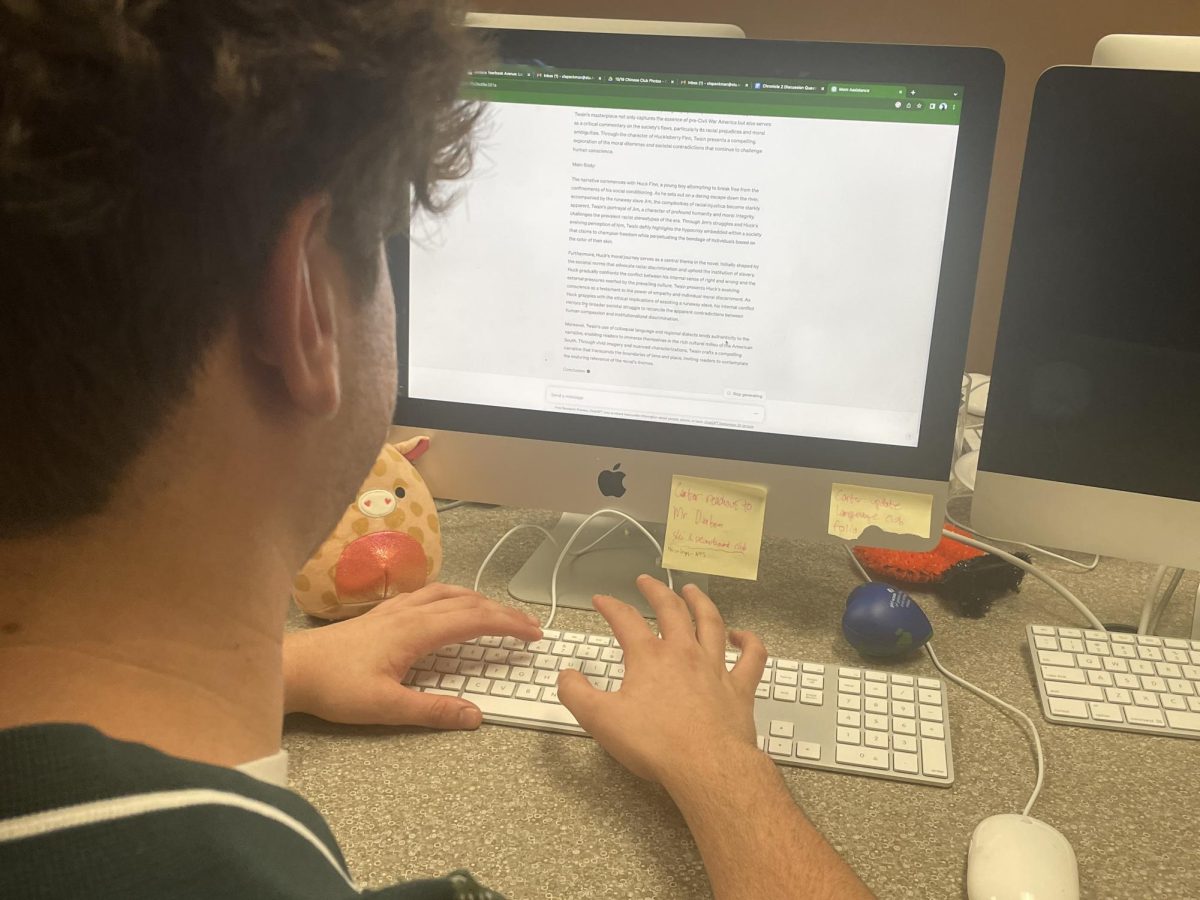District 203’s initiative implementing artificial intelligence into the classroom kicked off with school-endorsed ChatGPT accounts announced during SOAR homeroom on Oct. 3.
The initiative includes training courses for teachers about the technology, required as a prerequisite for them to use ChatGPT in class projects or instruction. According to Alex Mayster, Executive Director of Communications for District 203, the focus is on using the resource as a “learning tool.”
“You’re going to have classes where teachers are more actively using [artificial intelligence],” Principal Jackie Thornton said. “We’re trying to increase awareness of it.”
The required training courses sent out to teachers—created by two staff members at Naperville North—emphasize ethical usage of ChatGPT and other artificial intelligence softwares. Last year, many teachers were concerned about the impact such technology would have on academic integrity.
“I think [AI] is going to increase the frequency of our discussions about academic honesty,” Mike Doman, communication arts department chair, said in January. “Students [need to] understand the full implications of always owning their voice and doing their own original work.”
Thornton hopes that teachers can work to minimize cheating by enforcing current academic integrity policies. Currently, Central defines cheating as “using unauthorized aids on an examination, paper, report, project, homework [or] other assignment,” which includes the use of ChatGPT when not given permission by a teacher.
“There are some ethical boundaries that [students] should be considering,” Thornton said. “Part of that includes education for teachers who will define what crosses into academic integrity [violations].”
Providing school ChatGPT accounts is aimed at allowing teachers to utilize AI alongside students during classwork for which the technology is allowed, a shift from last year’s policy which blocked the website on Chromebooks entirely. According to Mayster, the adjustment reflects a change in viewpoint, with many thinking of AI as a learning tool rather than an opportunity to violate academic integrity.
“If we have a tool out there to better educate our students, why would we not use it?” Mayster said.
Some teachers have already completed the required AI courses and started using ChatGPT within their classrooms. Business INCubator teacher Brad Neubauer is one of those staff members.
“[ChatGPT] is fantastic to use because nobody knows everything,” Neubauer said. “It’s a resource for students to use and it’s not going anywhere. It’s our job to teach [students] how to use it.”
Neubauer will continue to use ChatGPT as part of the brainstorming process for potential student businesses and in other class projects, citing its success and enjoyment among students.
“It seemed like [students] really liked it,” Nuebauer said. “Even now in class students will be going back to ChatGPT for certain things.”
The current use of generative AI in Central is limited to ChatGPT, but future developments and improvements could lead to the expansion into new AI tools if deemed appropriate, Mayster said.




